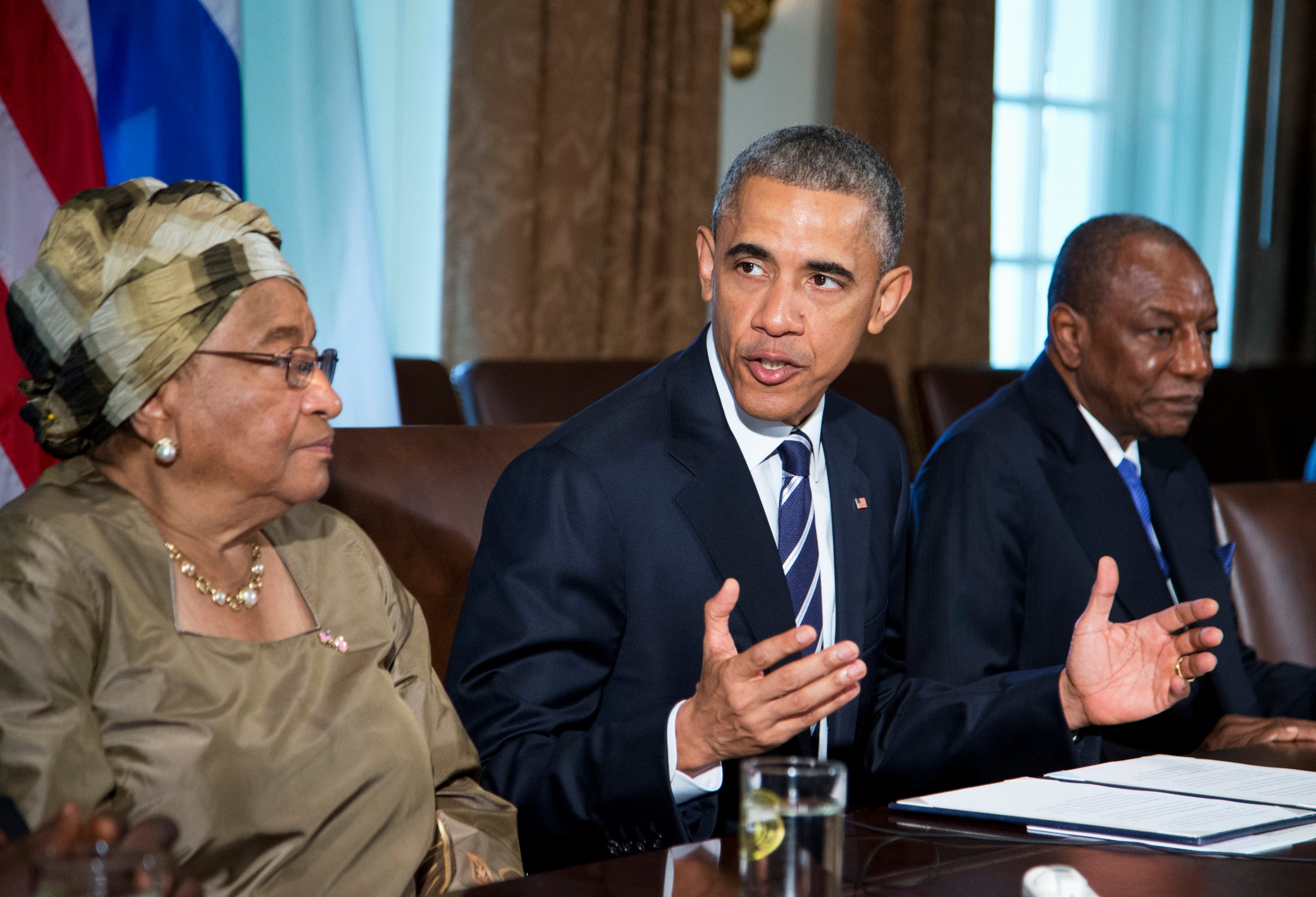
There were only 37 confirmed cases of Ebola last week, just a year after the deadly virus was spreading quickly across Western Africa. But key stakeholders in the effort to reduce the number of cases to zero said Thursday that success is not guaranteed.
“We are dealing now with the most difficult areas,” said Bruce Aylward, the assistant director-general of polio and emergencies at the World Health Organization. “We’re dealing with issues of fear, of trust with communities that have been marginalized. That have not been fully engaged.”
Alyward added, “These are issues that take time to resolve.” What’s more, the most affected areas are nearing their annual rainy season in April and May, which could exacerbate the disease’s spread. And, Alyward says, the eradication effort is running out of money.
“The only thing that’s falling faster than this graphic right here,” he said, holding up a chart that showed new confirmed cases, “is the one that shows you new financial contributions.”
The message on Thursday was clear: in the fight against Ebola, there’s no room for complacency. That’s not to say there hasn’t been progress. There has been a decline in new cases over the past several weeks and Liberia is inching closer to zero cases. In Sierra Leone, there were nine cases this past week and the week before. In Guinea, the situation is more mixed—there were 28 cases this week, up from 21 the week before. In an effort to keep numbers low, the government instituted a four-day stay-at-home policy in the most infected area so that teams can go to homes and share information.
Alyward, who joined WHO Director General Margaret Chan and others for a roundtable briefing at the United Nations Foundation on Thursday, said it’s important to keep up the fight, because if a single case or contact is missed, the community will suffer the consequences.
That message was similar to one that President Obama reiterated before meeting with leaders from Sierra Leone, Liberia and Guinea at the White House on Wednesday. “We can’t be complacent. This virus is unpredictable,” Obama said. “We have to be vigilant, and the international community has to remain fully engaged in a partnership with these three countries until there are no cases of Ebola in these countries.”
Presidents from the three countries will also appear Friday with World Bank Group President Jim Yong Kim to discuss the continued effort to get to zero. The meetings and appearances on the Ebola effort come in the wake of a scathing New York Times report that said the U.S.’s response to the crisis was too much, too late. Few of the treatment centers the U.S. military spent resources and manpower to complete have been put to use, the report found.
David Nabarro, who has organized the UN’s response to Ebola, said Thursday the American response should be commended. “This immediate and rapid response by the U.S. to use military to build treatment centers was amazing,” he said. “Instead of feeling abandoned by the world, they felt there was a group who believed they were worth supporting.”
More Must-Reads from TIME
- Cybersecurity Experts Are Sounding the Alarm on DOGE
- Meet the 2025 Women of the Year
- The Harsh Truth About Disability Inclusion
- Why Do More Young Adults Have Cancer?
- Colman Domingo Leads With Radical Love
- How to Get Better at Doing Things Alone
- Michelle Zauner Stares Down the Darkness
Contact us at letters@time.com